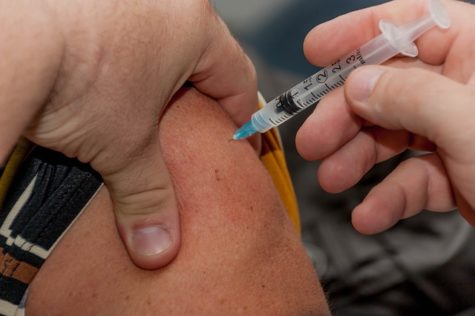ANN ARBOR, Mich. — The word vaccine is at the tip of the world’s collective tongue these days, and now researchers from the University of Michigan have something else vaccine-related to report. Almost unbelievably, however, their findings have nothing to do with COVID-19. No, this study pertains to the human papillomavirus (HPV). Study authors say only 16 percent of young men between 18 and 21 have received even one dose of the vaccine. Meanwhile, 42 percent of young women within the same age group have taken their vaccine.
These numbers are based on the 2010-2018 National Health Interview Surveys.
“Eighteen- to 21-year-olds are at this age where they’re making health care decisions on their own for the first time,” says first study author Michelle M. Chen, M.D., a clinical lecturer in the Department of Otolaryngology-Head and Neck Surgery, in a university release. “They’re in a period of a lot of transition, but young adult men especially, who are less likely to have a primary care doctor, are often not getting health education about things like cancer prevention vaccines.”
According to the CDC, Americans should receive two doses of the HPV vaccine around age 11 or 12. Regardless, health officials recommend getting the vaccine even if you miss that window. Overall, an adult should receive three doses by the age of 26.
Unfortunately, even among men receiving one or two doses by age 18, only a third ever went back to get the third and final shot.
HPV vaccines aren’t just for women
It doesn’t carry the stigma of other sexually transmitted diseases like herpes, HIV, or syphilis, but HPV is actually the most common STD in the United States. While often asymptomatic, it can cause unsightly genital warts, cervical cancer, and oropharyngeal cancer (affecting the throat, tonsils, or back of the tongue).
When these vaccines were first developed, tested, and approved by the FDA between 2006 and 2009, most awareness campaigns were aimed at women to fight cervical cancer. Now, in more recent years, HPV appears to be causing more cases of oropharyngeal cancer, and predominantly in men.
“I don’t think that a lot of people, both providers and patients, are aware that this vaccine is actually a cancer-prevention vaccine for men as well as women,” Chen adds. “But HPV-associated oropharyngeal cancer can impact anyone — and there’s no good screening for it, which makes vaccination even more important.”
The study appears in the journal JAMA.
